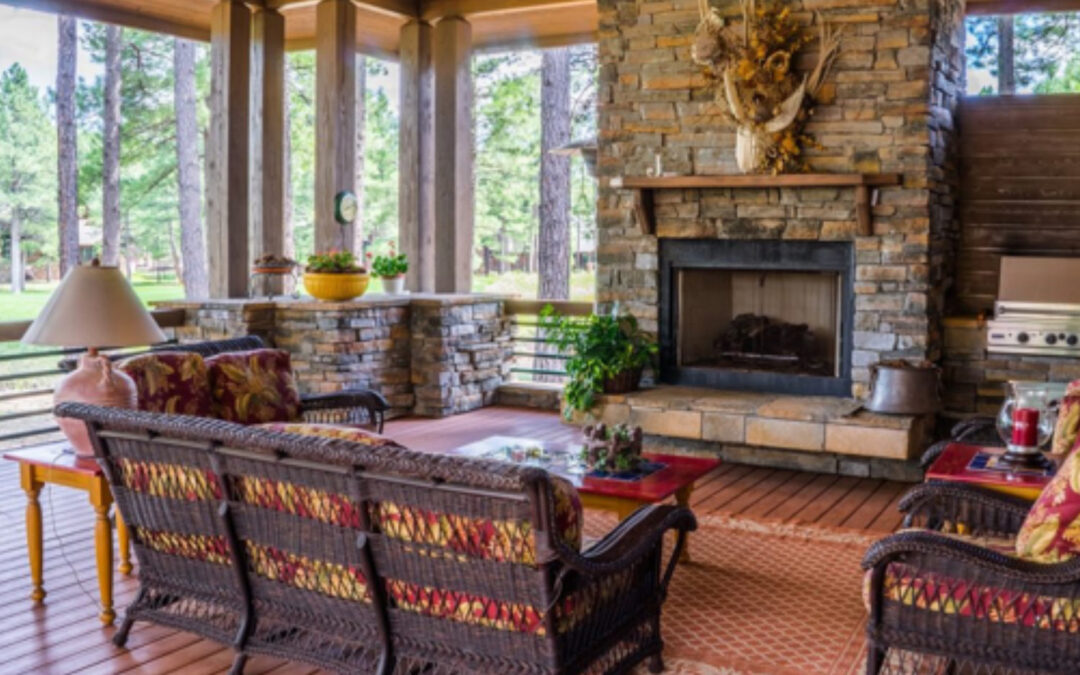For many people in North America, the weather outside is still pretty frightful, but a fire is so delightful. That is, as long as their flues are in good shape. Homeowners, especially in their first home, may not realize how much maintenance a flue requires if it’s part of a wood-burning fireplace.
But you can absolutely have the whole crackling fire experience in your own house with a little care and planning. After all, a dirty flue is a deadly flue.
The Good, the Bad and the Ugly of Flue Care
Owning a fireplace is a little like owning an exotic sports car. It’s nice to look at, you might use it now and again, but most owners don’t really know how to properly care for them. That’s ok, that’s what we’re here for. If you’re eyeballing that firebox right about now, make sure your flue is totally safe and ready to go with these five tips:
- Check that the bricks are secured and not falling apart.Don’t even think about firing up the fireplace until you’ve thoroughly inspected the brick on the outside. As fireplaces age, the bricks experience a condition known as spalling, where the faces of the bricks literally fall off due to repeated exposure to the environment. Bricks that are spalling have got to be repaired or replaced, otherwise your brick flue may not be able to tolerate the heat from the fire. They can also randomly fall and injure people below.
- Have a chimney Inspection.Did you have your chimney inspected? Ever? If not, now is the time. Many chimney fires go undetectedbecause they’re slow burning and occur in the upper portion of the flue. Although these are often minor fires, over time, the wear to the chimney is for real and can cause much more serious problems like heat damage to your attic, damaged roofing or destruction of the chimney liner which can then lead to carbon monoxide leaking into the house You can inspect the lower part of your flue fairly easily, but you will need a pro for the upper portion, so you might as well let them take a look from top to bottom.
- Clean that chimney.If your inspection determined that there was some sort of issue or significant creosote build-up, you want to have your chimney professionally cleaned before using it. Again, this is not something you can really do yourself and skipping it is putting you at serious risk of a flue fire, which is not something you want to wake up to at 2 am. Your chimney inspector is likely also a chimney sweep, just ask them to do the work while they’re there and you’ll save a separate trip charge.
- Legally remove any unwanted visitors.Even if that flue is totally clean, you’re still not necessarily in the clear. There are a number of animals that tend to take up residence inside unguarded flues. Do you ever hear strange noises or scratching coming from the inside of the flue? It could be all sorts of critters, from chimney swallows to bats and even raccoons. Adding a special chimney cap that allows the pest out after their young have been raised (check your local laws because some of these animals are considered protected species) will keep them from coming back again.
- Install a new liner.Older brick chimneys are notorious for leaking dangerous gasses and smoke into homes because the aged clay liners crack and break down over time. It’s not that you can’t use them, but you’ll need to replace the interior lining first. Chimney pros can generally install a new clay, metal or cast-in-place cement-like linersin almost no time and with little stress to you. In fact, you’ll find that you can rest a lot easier knowing that your flue liner is all brand new and with proper care, can last a very long time.
It’s hard to stress enough that major flue care is not a do-it-yourself project. Even if your local building codes allow you to make changes to your flue without a permit, don’t do it. This is a recipe for a house fire. Instead, always call a chimney pro to ensure that all is well. A yearly chimney inspection is a good idea if you intend to use your fireplace a lot. Having a wood-burning fireplace insert installed is another way to help reduce the risk of unwanted fires.

